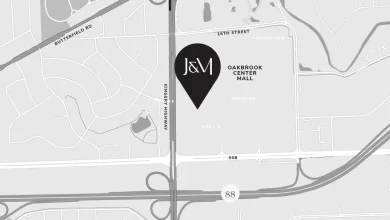
In recent years, Distributed Ledger Technology (DLT) has emerged as a disruptive force across various industries. One sector that has been significantly impacted by DLT is trading, giving rise to a new paradigm known as DLT trading. This article explores the concept of DLT trading, its advantages, and its potential to revolutionize the future of commerce.
Understanding DLT Trading
DLT trading refers to the use of distributed ledger technology, such as blockchain, to facilitate and enhance the trading of assets, commodities, and financial instruments. Unlike traditional trading systems, which rely on centralized intermediaries, DLT trading leverages decentralized networks to enable peer-to-peer transactions, increased transparency, and improved efficiency.
Advantages of DLT Trading
Enhanced Security
DLT trading offers robust security features, thanks to its decentralized nature. Each transaction is securely recorded on multiple nodes across the network, making it nearly impossible for malicious actors to alter or tamper with the data. This immutability and transparency reduce the risk of fraud, ensuring trust among participants.
Increased Efficiency
Traditional trading systems often involve multiple intermediaries, complex processes, and lengthy settlement times. DLT trading streamlines these processes by automating trade execution, reducing the need for intermediaries, and enabling faster settlement. This efficiency not only saves time but also minimizes costs associated with intermediaries and manual reconciliation.
Global Accessibility
DLT trading has the potential to democratize access to financial markets. By leveraging blockchain technology, individuals and entities around the world can participate in trading activities without the need for extensive paperwork, geographic limitations, or traditional banking systems. This opens up new opportunities for investors and traders, particularly in underserved regions.
Smart Contracts
DLT tradng often incorporates smart contracts, which are self-executing contracts with predefined rules encoded into the blockchain. Smart contracts automatically enforce the terms and conditions of a trade, eliminating the need for intermediaries and reducing the risk of contractual disputes. This automation increases trust and efficiency in trading processes.
Asset Tokenization
DLT trading enables the tokenization of real-world assets, such as real estate, art, or commodities. By representing these assets as digital tokens on a blockchain, they become easily divisible, tradable, and transferable. This opens up liquidity options for traditionally illiquid assets and allows fractional ownership, paving the way for new investment opportunities.
The Future of DLT Trading
DLT tradng has the potential to reshape the future of commerce in several ways. As the technology continues to mature and gain widespread adoption, we can expect to see:
Disintermediation
DLT tradings eliminates the need for intermediaries, such as brokers, clearinghouses, and custodians. This disintermediation reduces costs, removes barriers to entry, and empowers individuals and smaller organizations to participate directly in trading activities.
Industry Transformation
DLT tradng has the potential to disrupt various industries beyond finance, including supply chain management, healthcare, and intellectual property rights. By leveraging the transparency and traceability offered by DLT, these sectors can improve efficiency, reduce fraud, and enhance trust among participants.
Regulatory Challenges
The adoption of DLT tradng presents regulatory challenges that need to be addressed. Governments and regulatory bodies must adapt to the decentralized nature of DLT while ensuring consumer protection, preventing money laundering, and maintaining market stability.
Conclusion
DLT tradings represents a significant advancement in the world of commerce, offering enhanced security, efficiency, and accessibility. As the technology evolves and gains wider acceptance, it has the potential to transform various industries, revolutionizing how we trade assets, conduct business, and interact in the global economy. While there are still challenges to overcome, DLT tradig opens up a world of possibilities for a more inclusive, transparent, and efficient future of commerce.




